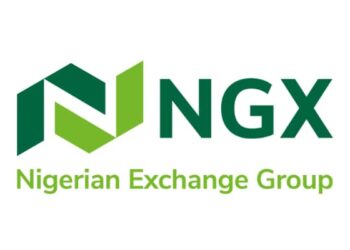In many of Africa’s developing nations, running a business or setting up a new one is a brave move for even the most qualified of entrepreneurs. This is due to the prevailing harsh economic and business environment on the continent. However, irrespective of the form of investment or business consideration, there will always be some risks involved or obstacles to overcome to achieve success. Starting up a new business or firm is a high-risk exercise in itself. All business enterprise faces a wide variety of risks, some of which come from within the company and others from outside.
Therefore, part of the true strength and courage of an entrepreneur is the ability to accept risks, and even when a setback is experienced, to have the nerve to come back and retry again. Entrepreneurs are usually risk-takers, who often spot opportunities in the market and develop new ideas for products and services by combining resources available at disposal. These steps typically come with associated risks because every business decision has an element of risk. This means that an entrepreneur cannot avoid risk in setting up a new venture or start-ups. Available data and reports have shown that a large proportion of new businesses eventually fail in the incubation stage. Consequently, there is no guarantee of success in business, particularly in start-ups. This means that any entrepreneur willing to set up a company runs the risk of failure, often involving financial loss. Business activity can expose an entrepreneur to different forms of risk, from financial loss to business failure, or lack of security.
Objectively, the main risks facing businesses revolve around internal factors such as customer and competitive behaviour, their current financial position, or external factors such as the economic climate, political stability, and regulation and compliance costs. Other areas of risk to businesses are input costs, compliance costs, market manipulation by some players, competitor activity, cyber-crime, and debt. The current reality of the novel coronavirus (COVID19) pandemic is equally a risk to businesses. A contingent plan of a change of strategy might be essential for the progression of companies at this time. Further to this, the government laws, policy responses to the pandemic and other forms of regulation invariably impose a wide and growing range of obligations on businesses, especially Small Medium Enterprises (SMEs). All these ordinarily will impact on business operations and its performance. It is imperative to state categorically that the biggest risks in business are taken in the first few years of business operations. The economy, and society as a whole, benefit when enterprises carry out their activities successfully.
From context observation, businesses run the risk of funding, which is crucial at the start-up stage, followed by a sound business model to get the start-up off the ground, and very vital, the unique selling point (USP). Another significant position requires for a business to be successful is a strong workforce, who share the same values and goals for the future and progression of the business/organization. A lack of cooperation or disagreements about these key business factors can create roadblocks for maintaining successful growth. If any of the area aforementioned fails, then it can have crucial implications for the future of the business. Risk is an inevitable part of every business venture, no matter the size or structure. Furthermore, to make a decision where the outcome is uncertain, unpredictable, and uncontrollable, financial wealth can either be gained or lost on the outcome of such a decision.
Meaningfully, it is possible to be in business and have manageable risks. Nonetheless, to mitigate risk in business, it is safe to consider risk management, which is one of the most important components of a successful business and investment plan. Some action to minimize risk in business operations, including having insurance, adequate planning, diversifying locations, having good processes and systems in place, conducting market intelligence, and having the right staff. Conventional risk management procedures can be adopted, which tends to focus on identifying, assessing and dealing with the risks associated with any of the business operations.
The relationship between risk and reward is one of the fundamentals of wealth creation globally and the focus of this article. Therefore, to create wealth, SME operators and entrepreneurs need to take calculative risks. Risk is unavoidable, and every threat is also an opportunity to grow. So, entrepreneurs and SME operators need to recognize when the level of risk in any business operation is relatively too high. More so, with careful planning, an entrepreneur can minimise the amount of risk they could face by considering information, such as market research data, that is available to them. Furthermore, financial planning and an internal audit will be integral in effectively managing business operations and useful to mitigate unforeseen risks. Any accountable business, will exercise and have strict compliance on all the measures as mentioned above to stay aloft and also manage its affairs responsibly.
The rewards from business operations is a justification for risks taking, though, and these include both financial and non-financial rewards. The financial reward is the cash-based return and benefit accrued from taking risks. It can be said to be the return on investment or profits. However, the potential non-financial benefits naturally depend on entrepreneurs’ values and business circumstances, particularly that of the shareholders and the business operators. On the other hand, many non-financial rewards arise from motives achieved such as a sense of business satisfaction, independence, positive reputation, opening a new location, employing more staff, getting an industry award or good publicity/popularity and even, getting great positive feedback from customers.
Significantly, when making business decisions, entrepreneurs should consider the risks and rewards involved. Expectedly weighing risks and rewards should be the pivot of any investment or business decision. However, in practice, businesses often disregard to consider risk against reward. In many SMEs, including large listed firms’ risks are ‘managed’ with little consideration of gain, and decisions are taken with scant regard to the risk involved. As a professional, the accurate recommendation is for SME operators and entrepreneurs to consider weighing up the risks associated with business decisions against the expected rewards. How should this be done is the big question? In practice, when taking a decision, there may be more than one gain and more than one loss, however, the ideal is to have the sum of the expected values of benefits to exceed the amount of expected values of losses.
Having a comprehensive business insurance policy in place can equally protect your business from many of the common risks faced in the day-to-day running, so entrepreneurs can have peace of mind and focus on the positive sides of the company. A successful business may always require a strategic plan, as well. Putting proactive strategies in place for how to take advantage of these risks will be a business differentiator. Part of a strategic business approach is to understand the market space in which one operates. Several surveys have suggested a culture of having and conforming to standard business ethics, rules, principles and sound corporate governance mechanism as helpful tools a business organization can adopt.
After all, money is a central factor in the motivation and operation of a business. However, it is not advisable to get into business if you do not have some appetite for risk and failure, especially with the current realities. On that note, the risk is part of life and part of the company.
Understanding and managing the risks involved in your business are key to achieving business success. Good luck!
How may you obtain advice or further information on the article?





